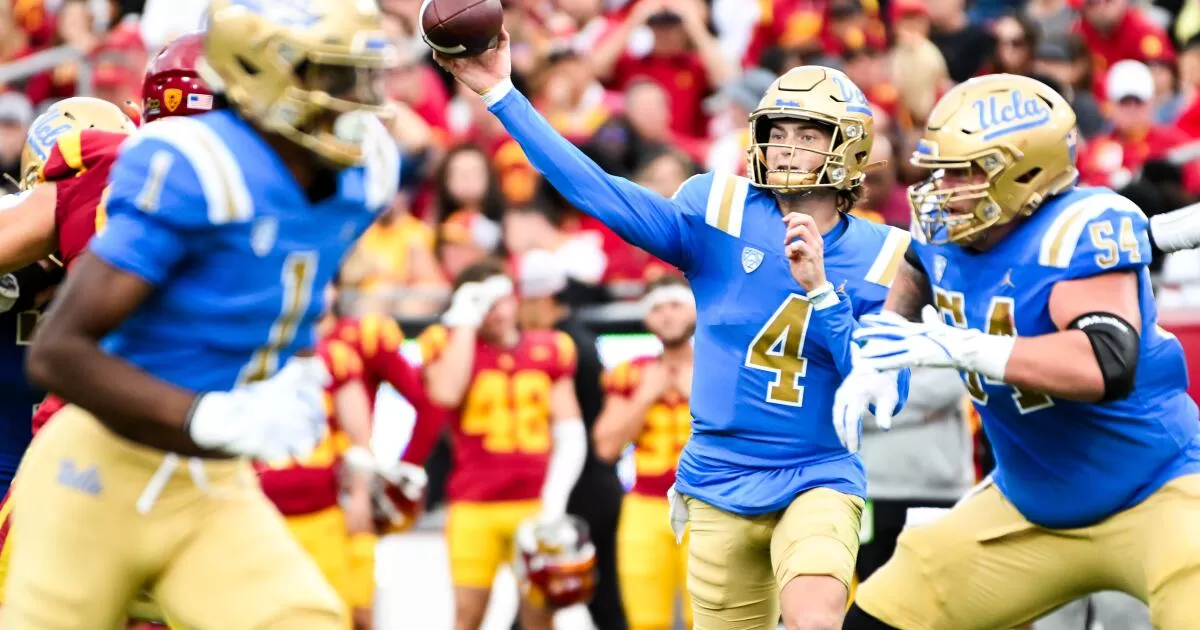EA settled with Keller, et al., for $40 million, and the NCAA chipped in another $20 million. Sounds like a lot but payments to each player ranged from about $1,500 to $15,000.
Keller, for his part, was flogged in the public square of social media for “ruining the video game for us.”
“People looked at the situation and thought I’m going after the game because I couldn’t make it as an NFL player and needed to make a quick buck,” Keller told the Arizona Republic in 2019 when college players were granted the right to be paid for their name, image and likeness, or NIL.
“I understand all that, but that was never the intent. The case was more about what’s happening now [with NIL]. It was just the first of a lot of steps to change the norm to something that’s fair.”
Today college players are making significant sums through NIL deals. And what do you know, Redwood City-based EA Sports announced the return of the video game. College Football 25 — the last version was CF 14 in 2013 — will be released this summer.
And, yes, players’ names will be used. Two weeks ago, EA offered $600 and a free copy of the game to any player who agreed to have their likeness featured, and more than 10,000 of the 11,390 FBS players already are on board, meaning EA will be paying players a total of $6 million to $7 million. Some players might make more than $600 by agreeing to promote the game.
Gamers will be blocked from manually adding players who decide not to accept the offer, the video game developer said. Among those who reportedly will opt out is Texas quarterback Arch Manning, the nephew of Peyton and Eli Manning. The quarterback Arch Manning played behind last season, Quinn Ewers, said on Instagram that he took the offer. So did fellow high-profile passers Dillon Gabriel of Oregon, Jalen Milroe of Alabama and Jaxson Dart of Mississippi.
Closer to home, UCLA quarterback Ethan Garbers and USC wide receiver and explosive kick returner Zachariah Branch opted in. So did most of their teammates.
“The response to the athlete opt-in opportunity for EA Sports College Football 25 has been phenomenal,” EA senior vice president Daryl Holt said in a statement. “We’re excited to welcome more athletes in the weeks ahead and to debut this first class of athletes in the game when it launches this summer.”
What else do we know about EA CF 25? All 85 FBS teams will be in the game with 2024 uniforms. The spate of recent conference realignments will be recognized. The new 12-team College Football Playoff is accommodated with the ability to customize. Every bowl game will be featured.
Also, the Dynasty and Road to Glory modes that 2013 gamers remember return with NIL components, and the game will run on the same engine as the Madden franchise.
Fifteen years ago, Keller’s lawsuit described EA’s attention to detail and revealed at least one way the video game company collected information on players to make the game as realistic as possible.
“EA attempts to match any unique, highly identifiable playing behaviors by sending detailed questionnaires to team equipment managers,” the lawsuit said. “Additionally, EA creates realistic virtual versions of actual stadiums; populates them with the virtual athletes, coaches, cheerleaders, and fans realistically rendered by EA’s graphic artists; and incorporates realistic sounds such as the crunch of the players’ pads and the roar of the crowd.
“EA’s game differs from reality in that EA omits the players’ names on their jerseys and assigns each player a home town that is different from the actual player’s home town.”
This time around, coaches are omitted, although Ole Miss coach Lane Kiffin told Andy Staples of On3 he would give permission to appear in the game without any compensation.
“The kids like to play it,” he said. “My brain thinks about what would help in recruiting? If you did pay me for that, I wouldn’t want it. I’d want you to put it into our NIL.”
